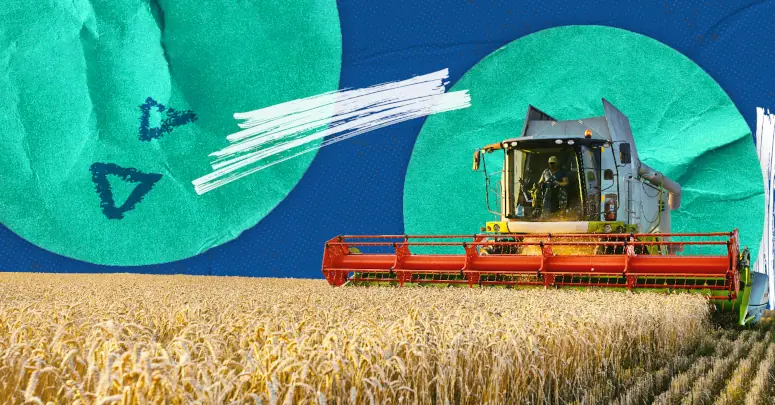Stay Informed: AHC Improvements Project
Australia’s agriculture, horticulture, conservation, and land management (AHC) training package is critical to the nation’s education and skills development system. Covering a wide range of industry sectors and employing approximately 318,000 individuals, this training package ensures that the workforce is equipped with the skills needed to thrive in a rapidly evolving environment. In recent years, the AHC training package has undergone significant enhancements, with a focus on aligning it with modern work methods and the evolving needs of the industry. In this blog, we will explore the AHC Improvements Project, its background, objectives, and the benefits it offers to both the industry and learners.
September 2023 Updates on AHC Improvement Project
In recent updates on the AHC Improvement Project, units of competency that encompass fundamental skills essential for the AHC sector have undergone revisions. These updates were necessary to align the competencies with contemporary technology, systems, and regulations. Furthermore, crucial competencies were integrated with biosecurity, environmental sustainability, and quality assurance into these units. Additionally, these units were enhanced to encompass skills pertaining to workplace health and safety, with a specific focus on effective communication of safety procedures among workers, supervisors, and responsible officers.
Given that these units are prevalent throughout the training package, impacting numerous qualifications and skill sets beyond the scope of the initial projects, it is imperative that efforts be extended to update these related qualifications and skill sets accordingly.
Changes on Updated Units
In the AHC Improvement Project, common changes were implemented across all updated units, and these modifications are now mandatory components of the qualifications and skill sets listed below.
- Foundation Skills: The Foundation Skills, present in numerous units, have been revised to align with the essential skills necessary from certificate level I to diploma level. This adjustment ensures that these skills meet workplace demands while avoiding any impediments for individual learners. Additionally, some previously listed core work skills have been removed in accordance with established policy frameworks.
- Performance Evidence: In many cases, the Performance Evidence has been updated to include the ‘frequency’ (number of times) that an individual must demonstrate their performance under assessment conditions. It is important to note that the requirement for demonstrating a specified task or activity at least once does not imply that the individual will perform the task only once. Instead, it signifies that the task must be performed once under assessment conditions after competency has been achieved.
- Assessment Conditions: The Assessment Conditions for several updated units have been modified to specify the necessary conditions for assessments to occur, as well as the requirements for assessors.
- Language and Consistency: Language in the units was meticulously reviewed and adjusted as needed to match the appropriate skill level. Units across different levels within each unit sector were simultaneously revised to promote consistency throughout the units.
Workplace Health and Safety Units (AHCWHS)A set of AHCWHS units, which serve as core components in numerous qualifications, underwent a comprehensive review process with valuable contributions from prominent WHS organisations such as FarmSafe Australia and FarmSafe QLD. In addition to aligning the terminology with legislative updates, a significant emphasis was placed on establishing effective communication pathways both upward and downward within the organisational hierarchy when identifying and reporting WHS concerns. This emphasis was deemed crucial in the prevention of accidents. The units were subsequently revised to ensure that workplace communication standards for addressing and reporting workplace health and safety issues are universally understandable and applicable across all industry sectors. |
Work Units (AHCWRK)AHCWRK units have a broad application, spanning multiple qualifications and encompassing the essential skills and knowledge needed for a diverse array of tasks commonly encountered within the AHC sector. An overarching theme emphasised in the updated units is the significance of respectful communication, alongside the incorporation of updated technology, awareness of environmental impacts, strategic planning for optimal yields in variable conditions, and meticulous recording of data and adherence to quality assurance procedures. |
Environmental and Sustainability Units (AHCWRK)Environment and sustainability units have been designated as core components in numerous qualifications, reflecting the viewpoint that the crucial significance of sustainability extends across all sectors, underpinning their continued viability. Special consideration was given to both the skill levels and language requirements employed in delineating skills at indicative levels within these units. Adjustments were carefully implemented to ensure that these descriptions align more closely with their respective skill levels. |
Infrastructure Units (AHCINF)The infrastructure units underwent updates to align with contemporary practices related to the construction and upkeep of infrastructure and fencing, essential components in various agricultural contexts. |
Community Coordination and Facilitation (AHCCCF)Initially, all AHCCCF units and qualifications were evaluated for potential deletion due to low enrolment rates. Nevertheless, they were ultimately retained and subsequently updated to align with the present skill demands. Subsequent consultations revealed that these units encompassed vital skills pertinent to Landcare and working with volunteers, with broad applications extending beyond specific sectors into agriculture and horticulture in general. |
On Country Management Units (AHCOCM)The content of the units was bolstered and brought up-to-date to align with contemporary requirements. Additionally, revisions were carried out to reassert the rights of Aboriginal and Torres Strait Islander communities to apply the knowledge and skills outlined within the units for their communities and personal pursuits. The unanimous consensus among stakeholders was to ensure the use of suitable language and maintain consistent terminology throughout the revisions. |
Draft Qualifications and Skill Sets
Draft qualifications and skill sets are now available for feedback from 8 September to 6 October 2023. You may provide your input via the survey links below.
Qualifications
|
Current Qualification |
Revised Qualification |
Survey Link |
|
AHC10124 Certificate I in Conservation and Ecosystem Management |
||
|
AHC20621 Certificate II in Parks and Gardens |
||
|
AHC21020 Certificate II in Conservation and Ecosystem Management |
AHC21024 Certificate II in Conservation and Ecosystem Management |
|
|
AHC21621 Certificate II in Landscaping |
||
|
AHC30221 Certificate III in Dairy Production |
||
|
AHC30318 Certificate III in Rural and Environmental Pest Management |
AHC30324 Certificate III in Rural and Environmental Pest Management |
|
|
AHC30921 Certificate III in Landscape Construction |
||
|
AHC31021 Certificate III in Parks and Gardens |
||
|
AHC31319 Certificate III in Sports Turf Management |
||
|
AHC31421 Certificate III in Conservation and Ecosystem Management |
AHC31424 Certificate III in Conservation and Ecosystem Management |
|
|
AHC32422 Certificate III in Irrigation Technology |
||
|
AHC33920 Certificate III in Medicinal Cannabis Cultivation and Production |
AHC33924 Certificate III in Medicinal Cannabis Cultivation and Production |
|
|
AHC40920 Certificate IV in Conservation and Ecosystem Management |
AHC40924 Certificate IV in Conservation and Ecosystem Management |
|
|
AHC42021 Certificate IV in Landscape Construction Management (Release 1) |
AHC42021 Certificate IV in Landscape Construction Management (Release 2) |
|
|
AHC42320 Certificate IV in Medicinal Cannabis Cultivation and Production |
AHC42324 Certificate IV in Medicinal Cannabis Cultivation and Production |
|
|
AHC51019 Diploma of Sports Turf Management |
||
|
AHC51422 Diploma of Agribusiness Management (Release 1) |
||
|
AHC51519 Diploma of Viticulture |
||
|
AHC51920 Diploma of Applied Agronomy (Release 1) |
||
Skill Sets
|
Current Skill Set |
Revised Skill Set |
Survey Link |
|
AHCSS00045 Spray Operator Skill Set |
||
|
AHCSS00061 Prepare For and Manage Organic Farm Certification Skill Set |
AHCSS00061 Prepare For and Manage Organic Farm Certification Skill Set |
|
|
AHCSS00070 Recognise Native and Feral Fauna Skill Set |
||
|
AHCSS00073 Advanced Chemical Spray Application Skill Set |
||
|
AHCSS00080 Introduction to Carbon Farming Skill Set |
||
|
AHCSS00088 Farm Business Workforce Skill Set |
||
|
AHCSS00089 Business Skills For Sports Turf Management Skill Set |
AHCSS00170 Business Skills For Sports Turf Management Skill Set |
|
|
AHCSS00091 Technical Skills For Sports Turf Management Skill Set |
AHCSS00171 Technical Skills For Sports Turf Management Skill Set |
|
|
AHCSS00092 Irrigation Retailer Skill Set |
||
|
AHCSS00093 Gravity Fed Irrigation Operator Skill Set |
||
|
AHCSS00094 Irrigation Agronomist Skill Set |
||
|
AHCSS00095 Irrigation Contractor Skill Set |
||
|
AHCSS00096 Irrigation Installer Skill Set |
||
|
AHCSS00097 Irrigation Manager Skill Set |
||
|
AHCSS00098 Pressurised Irrigation System Operator Skill Set |
||
|
AHCSS00101 Irrigation Retail Sales Skill Set |
||
|
AHCSS00102 Irrigation Meter Installation and Validation Skill Set |
AHCSS00179 Irrigation Meter Installation and Validation Skill Set |
|
|
AHCSS00107 Production Horticulture Machinery Skill Set |
||
|
AHCSS00108 Production Horticulture Manager Skill Set |
||
|
AHCSS00109 Production Horticulture Supervisor Skill Set |
||
|
AHCSS00113 Firearms Skill Set |
||
|
AHCSS00115 Construct Roof Gardens, Vertical Gardens and Green Facades Skill Set |
AHCSS00184 Construct Roof Gardens, Vertical Gardens and Green Facades Skill Set |
|
|
AHCSS00116 Maintain Roof Gardens, Vertical Gardens and Green Facades Skill Set |
AHCSS00116 Maintain Roof Gardens, Vertical Gardens and Green Facades Skill Set |
|
|
AHCSS00118 Seed Processing Skill Set |
||
|
AHCSS00123 Administrator in Mined Land Rehabilitation Skill Set |
AHCSS00186 Administrator in Mined Land Rehabilitation Skill Set |
|
|
AHCSS00124 Mined Land Rehabilitation Field Worker Skill Set |
||
|
AHCSS00125 Mined Land Rehabilitation Machine Operator Skill Set |
AHCSS00188 Mined Land Rehabilitation Machine Operator Skill Set |
|
|
AHCSS00126 Mined Land Rehabilitation Project Coordinator Skill Set |
AHCSS00189 Mined Land Rehabilitation Project Coordinator Skill Set |
Units of Competency
Minor amendments have been identified for the following two units:
|
Unit |
Survey Link |
|
AHCAGB518 Develop climate risk management strategies |
|
|
AHCMOM302 Perform machinery maintenance |
Four units were proposed for deletion:
|
Existing Unit |
Survey Link |
|
AHCMER301 Process customer complaints suggested to be replaced by BSBOPS305 Process customer complaints in impacted qualifications/skill sets. |
|
|
AHCCCF407 Obtain resources from community and groups |
|
|
AHCCCF409 Participate in assessments of project submissions |
|
|
AHCCCF410 Support individuals in resource management change processes |
One unit was proposed for inclusion in Arboriculture Diplomas
|
Unit |
Survey Link |
|
AHCARB613 Conduct complex tree hazard and health assessment post-fire |
All unit drafts with highlighted changes and the draft copies of the AHC Version 10.0 Companion Volume Implementation Guides (CVIG) Part 1 and Part 2 are available on the Skills Insight website.
The equivalency status for qualifications and skill sets with new codes will be established once the unit placements are finalised. If you would like to offer feedback on equivalency and CVIG, please feel free to contact Ruth Geldard via email at rgeldard@skillsinsight.com.au
Project Background
The AHC training package is exceptionally diverse, covering various industry sectors that are interconnected by a web of unique skills. In response to technological advancements, changing market dynamics, and growing environmental concerns, regularly updating the training package has become imperative to ensure its relevance and effectiveness. This led to the development of the AHC Improvements Project, a strategic initiative aimed at reviewing and enhancing the training package holistically.
One of the distinguishing features of this project is its ‘Unit Sector’ approach. Rather than focusing solely on qualifications, it categorises units of competency based on their sector classification. This approach allows for a more efficient and comprehensive review of the training package, ensuring that it remains up to date with the ever-evolving industry landscape.
Objectives of the AHC Improvements Project
- Holistic Review: The primary objective of the AHC Improvements Project is to review the entire training package within a limited timeframe. This approach ensures that all aspects of the package, including qualifications and skill sets, are brought in line with current industry practices and requirements.
- Minimal Impact on RTOs: RTOs play a crucial role in delivering training to learners. The ‘unit sector’ approach reduces the burden on RTOs by minimising the need to constantly update their training materials, ensuring a smoother transition for educators and students.
- Expert Involvement: The project leverages the expertise of professionals in the field, making better use of their time when volunteering their insights. Their contributions help ensure that the training package remains relevant and industry-driven.
- Identifying Duplication and Gaps: By categorising units by sector, the project facilitates the identification of duplication in content and areas where essential skills may be missing. This process improves the quality of AHC units and enhances the training package overall.
- Aligning with AQF Levels: The project also seeks to align units with their defined Australian Qualifications Framework (AQF) levels, enhancing the overall quality and consistency of the training package.
Benefits for the Industry and Learners
The AHC Improvements Project is not only a significant step forward for the industry but also a boon for learners and educators:
- Industry Relevance: Regular updates ensure that the AHC training package reflects the latest industry practices, making graduates more competitive and relevant in the job market.
- Streamlined Learning: Learners benefit from a more streamlined and up-to-date curriculum, enabling them to acquire the most relevant skills efficiently.
- Industry Collaboration: The project encourages active collaboration between industry experts, educational institutions, and regulatory bodies, fostering a stronger connection between education and employment.
- Improved Quality: The ongoing review process enhances the quality of the training package, resulting in better-trained professionals who can contribute effectively to their fields.
- Environmental Focus: Given the industry’s growing emphasis on environmental conservation, updates related to work health and safety and environmental care are particularly crucial. These updates ensure that graduates are well-prepared to address environmental challenges.
Project Timeline
|
Start Date |
30 June 2023 |
|
Project Planning |
July 2023 |
|
Development |
August 2023 |
|
Drafts Available |
September 2023 |
|
Validation |
November 2023 |
|
Finalisation |
January 2024 |
|
Endorsement |
March 2024 |
Project Scope and Purpose
The project’s primary aim is to update a group of qualifications and skill sets to incorporate newly developed and revised units of competency resulting from work conducted between 2019-2022.
- 40 qualifications will be reviewed
- 28 skill sets will be reviewed
- Four units are proposed for deletion
-
- AHCMER301 – Process customer complaints
- AHCCCF407 – Obtain resources from community and groups
- AHCCCF409 – Participate in assessments of project submissions
- AHCCCF410 – Support individuals in resource management change processes
A total of 40 qualifications will undergo a thorough review. This process will ensure that these qualifications are equipped with the latest core and elective units, as well as integrating newly created units wherever they are applicable.
Similarly, 28 skill sets are slated for review as part of this project. During this evaluation, some skill sets with low enrolments will be evaluated for potential deletion.
As part of the project’s comprehensive review, four units have been identified for potential deletion. These units were initially included in AHC qualifications but have since become obsolete or duplicated by other units due to the dynamic nature of the industry. The proposed action is to remove these four units from the qualifications currently under review in this project and, subsequently, to delete them from the AHC training package.
Additional Tasks
In addition to the primary focus of this project, several other significant aspects deserve attention and have been identified for review and potential updates:
- Qualifications Enhancement: This project offers an opportunity to update a limited number of qualifications with units from the forest and wood products (FWP) and business services (BSB) sectors. These units have undergone revisions as part of recent training package projects, and their inclusion will bolster the overall quality and relevance of the qualifications.
- Minor Amendments: Three specific units within the AHC training package have been identified for minor amendments. This project provides a platform to review and align these units with the suggested amendments, ensuring that they remain current and effective. The units in question are:
- AHCWHS503: Manage workplace health and safety processes
- AHCAGB518: Develop climate risk management strategies
- AHCMOM302: Perform machinery maintenance
- Introduction of New Unit: As part of this project, a new unit, AHCARB6: Conduct complex tree hazard and health assessment post-fire, is proposed to be added to the Diploma and Advanced Diploma of Arboriculture. This unit was developed in response to the forestry industry’s need for skills related to clearing and cleaning up after bushfires. Moreover, it is also relevant to arborists who possess expertise in handling hazardous trees and may be required to undertake such tasks. The inclusion of this unit enhances the qualifications’ comprehensiveness and equips learners with vital skills for post-fire assessments. This unit will be submitted for endorsement as part of this project, further enriching the AHC training package.
What Are the Qualifications to Be Updated?
|
Qualification Code |
Qualification Name |
|
Certificate I in Conservation and Ecosystem Management |
|
|
Certificate II in Production Horticulture |
|
|
AHC20621 |
Certificate II in Parks and Gardens |
|
Certificate II in Nursery Operations |
|
|
Certificate II in Conservation and Ecosystem Management |
|
|
Certificate II in Irrigation |
|
|
AHC21621 |
Certificate II in Landscaping |
|
Certificate II in Protected Horticulture |
|
|
AHC30221 |
Certificate III in Dairy Production |
|
Certificate III in Rural and Environmental Pest Management |
|
|
Certificate III in Production Horticulture |
|
|
Certificate III in Arboriculture |
|
|
AHC30921 |
Certificate III in Landscape Construction |
|
AHC31021 |
Certificate III in Parks and Gardens |
|
Certificate III in Nursery Operations |
|
|
AHC31319 |
Certificate III in Sports Turf Management |
|
AHC31421 |
Certificate III in Conservation and Ecosystem Management |
|
Certificate III in Beekeeping |
|
|
AHC32422 |
Certificate III in Irrigation Technology |
|
Certificate III in Rural Merchandising |
|
|
AHC33920 |
Certificate III in Medicinal Cannabis Cultivation and Production |
|
Certificate IV in Protected Horticulture |
|
|
Certificate IV in Production Horticulture |
|
|
Certificate IV in Nursery Operations |
|
|
Certificate IV in Conservation and Ecosystem Management |
|
|
Certificate IV in Agribusiness |
|
|
Certificate IV in Irrigation Management |
|
|
Certificate IV in Pest Management |
|
|
AHC42021 |
Certificate IV in Landscape Construction Management |
|
AHC42320 |
Certificate IV in Medicinal Cannabis Cultivation and Production |
|
Diploma of Production Horticulture |
|
|
Diploma of Arboriculture |
|
|
Diploma of Nursery Management |
|
|
AHC51019 |
Diploma of Sports Turf Management |
|
Diploma of Pest Management |
|
|
AHC51422 |
Diploma of Agribusiness Management |
|
AHC51519 |
Diploma of Viticulture |
|
Diploma of Irrigation Design |
|
|
AHC51920 |
Diploma of Applied Agronomy |
|
Advanced Diploma of Arboriculture |
This project is included in the 2022-23 Annual Training Product Development Plan.
Gathering Key Information for Development
In light of the strategic overhaul of the AHC training package, which adopts a unit sector approach, it has become necessary to update various qualifications and skill sets. This update encompasses the incorporation of improved units, notably those related to work health and safety and environmental care, which form the core of several qualifications.
Skills Insight is actively soliciting feedback from individuals and organisations that may be affected by the replacement of these units. This collaborative approach aims to minimise any potential disruptions in the transition. It’s important to clarify that these updates do not alter the qualifications’ original objectives; rather, they seek to integrate units that have already undergone consultation with stakeholders to better align with current skills requirements.
Currently, the project team is in the process of compiling essential information regarding the units slated for replacement, their suggested replacements, and the disparities between the existing and revised versions of these units.
To ensure a comprehensive and well-informed update, subject matter experts specialising in specific qualification areas have been enlisted for their valuable insights. These experts cover a wide array of domains, including but not limited to:
- Conservation and Ecosystem Management
- Production Horticulture
- Protected Horticulture
- Nursery Operations
- Irrigation
- Landscaping
- Dairy Production
- Pest Management
- Arboriculture
- Parks and Gardens
- Sports Turf Management
- Beekeeping
- Rural Merchandising
- Agronomy
- Agribusiness
Online Information Sessions for a Deeper Insight
To ensure that everyone is well-informed about the forthcoming updates to qualifications and skill sets, a series of online information sessions have been scheduled for September. These one-hour sessions aim to provide clarity on the updates and guide participants on how to offer feedback effectively.
Register for the session that aligns best with your schedule:
- Tuesday, 12 September, 10:00 am to 11:00 am (AEST)
- Thursday, 14 September, 2:00 pm to 3:00 pm (AEST)
- Wednesday, 20 September, 12:00 pm to 1:00 pm (AEST)
- Thursday, 21 September, 11:00 am to 12:00 pm (AEST)
What’s Happening Next and How You Can Be Involved
This September, all updates will be available on the AHC Improvements Project webpage. You’ll find out which units are changing, where these changes apply, and what’s different between the current units and the new ones. A survey will also be conducted to allow stakeholders to provide their feedback. Your participation is crucial in improving the AHC Training Package together.











